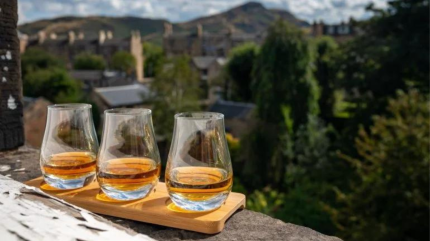
Scotch whisky has obtained a protected status in Brazil that gives it legal standards and security against counterfeiting.
Brazil has granted the ‘geographical indication’ (GI) status to Scotch whisky, bringing the product into the country’s legal system. GI’s provide countrywide intellectual property rights to products based on qualities or characteristics associated with their place of origin.
“As the first foreign product to be granted Denomination of Origin status in Brazil since 2019, Scotch whisky now sits beside Tequila, Cognac and Champagne with special legal protection,” Scotch Whisky Association CEO Mark Kent said.
“This is fundamental to ensure that millions of Brazilians can have confidence in the quality and history of what they’re buying.”
The UK exported roughly £90m ($118) of Scotch whisky to Brazil in 2023. The government estimates that the addition of the GI status will amount to £25m over the next five years.
Scotch whisky was granted a certification trademark in the US in 2022. The US trademark protects products from being counterfeited and sets a legal standard.
Scotch whisky was already protected under US Federal Law where it is defined as “a distinctive product of Scotland manufactured in Scotland in compliance with the laws of the United Kingdom.” Under the certification trademark, Scotch whisky products are subject to higher standards that detail their geographical origin, manufacturing process and quality tests.
Last year, Scotch whisky security was increased in China when the spirit was trademarked in Hong Kong.
Under the trademark, all products to use the label must follow production requirements that include having been produced in Scotland using only water, cereals and yeast, and then matured in the country for at least three years in oak casks.
At the time, the SWA said the Hong Kong market was “increasingly important” for Scotch whisky, and exports have nearly doubled in value since 2013.



